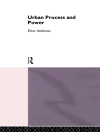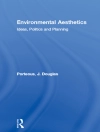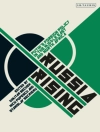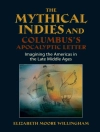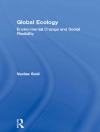This book argues that the relationship between cities and climate change is entering a new and more urgent phase. Thirteen contributions from a range of leading scholars explore the need to rethink and reorient urban life in response to climatic change. Split into four parts it begins by asking ‘What is climate urbanism?’ and exploring key features from different locations and epistemological traditions. The second section examines the transformative potential of climate urbanism to challenge social and environmental injustices within and between cities. In the third part authors interrogate current knowledge paradigms underpinning climate and urban science and how they shape contemporary urban trajectories. The final section focuses on the future, envisaging climate urbanism as a new communal project, and focuses on the role of citizens and non-state actors in driving transformative action.
Consolidating debates on climate urbanism, the book highlights the opportunities and tensions of urban environmental policy, providing a framework for researchers and practitioners to respond to the urban challenges of a radically climate-changed world.
Jadual kandungan
Chapter 1. Introduction. Climate Urbanism: towards a critical research agenda; Vanesa Castán Broto, Enora Robin and Aidan While.- PART 1: What is climate urbanism?.- Chapter 2. For a minor perspective on climate urbanism: towards a decolonial research praxis; Enora Robin, Linda Westman and Vanesa Castán Broto.- Chapter 3. Climate urbanism and the implications for the climate apartheid; Joshua Long, Jennifer L. Rice and Anthony Levenda.- Chapter 4. New Climate Urbanism or Old Capitalism with climate characteristics?; Linda Shi.- Chapter 5. Understanding the governance of a New Climate Urbanism; Sirkku Juhola.- PART 2: Climate urbanism and transformative action.- Chapter 6. Urban climate imaginaries and climate urbanism; Linda Westman and Vanesa Castán Broto.- Chapter 7. Institutional dynamics of transformative climate urbanism: remaking rules in messy contexts; James Patterson.- Chapter 8. Urban resilience and the politics of development; Eric Chu.- Chapter 9. Two cheers for ‘entrepreneurial climate urbanism’ in the conservative city; Corina Mc Kendry.- PART 3: The knowledge politics of climate urbanism.- Chapter 10. An adaptation agenda for the new climate urbanism: global insights; Marta Olazabal.- Chapter 11. The New Climate Urbanism: a physical, social, and behavioural framework; Luna Khirfan.- Chapter 12. Collaborative education as a ‘New (urban) Civil Politics of climate change’; Andrew Kythreotis and Theresa Mercer.- PART 4: Climate urbanism as a new communal project.- Chapter 13 Community energy resilience for a New Climate Urbanism; Long Seng To.- Chapter 14. Making climate urbanism from the grassroots: eco-communities, experiments and divergent temporalities; Jenny Pickerill.- Chapter 15. Conclusions. Three modalities for a New Climate Urbanism; Vanesa Castán Broto, Enora Robin and Aidan While.
Mengenai Pengarang
Vanesa Castán Broto is Professorial Fellow at the Urban Institute in the University of Sheffield, UK. She currently leads the projects Low Carbon Action in Ordinary Cities, LOACT (European Research Council) and Community energy and sustainable energy transitions in Ethiopia, Malawi, Mozambique, CESET (UK Global Challenges Research Fund).
Enora Robin is Research Fellow at the Urban Institute, University of Sheffield, UK, where her work explores how climate change reshapes everyday living in cities. Her research currently investigates the reconfiguration of energy infrastructure systems in Ghana and Mozambique.
Aidan While is Senior Lecturer in the Department of Urban Studies and Planning and co-director of the Urban Institute at the University of Sheffield, UK. He has researched urban environmental policy since the early 1990s, charting the ebb and flow of climate policy andits intersections with economic and social policy in cities in Europe, Asia and North America.


